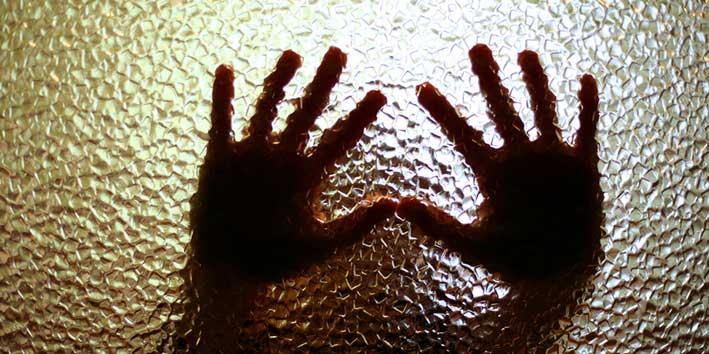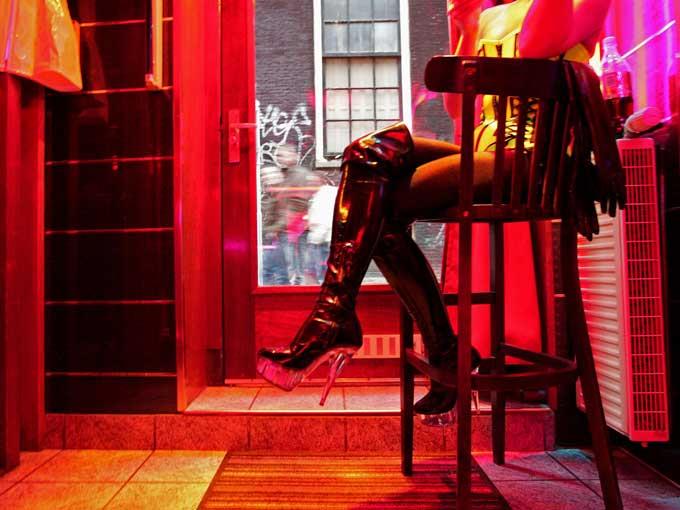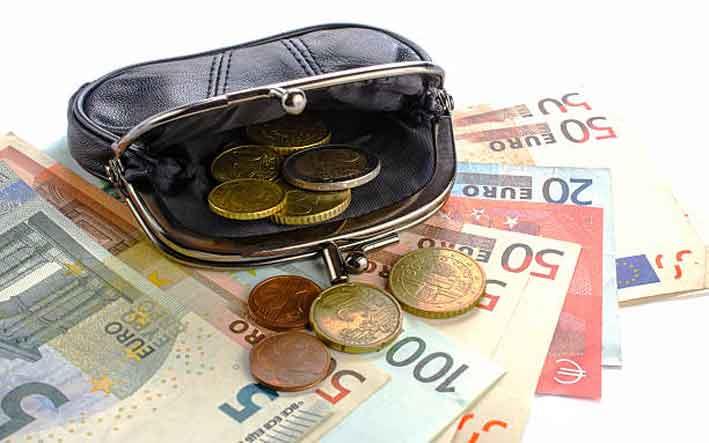The regularisation of prostitution is not the way forward, and to do so with the current state of enforcement could result in a complete disaster, Dr Anna Vella, who has been a volunteer at Dar Hosea (a day centre for women involved in prostitution) for the past three years and has been doing similair voluntary work for the past 22 years, told The Malta Independent on Sunday.
Prostitution in Malta has been a main topic of discussion after Prime Minister Joseph Muscat called for a debate on its possible regularisation, but the reality behind the local sex trade is far darker than one might imagine.
Dr Vella spoke about the prostitution situation in Malta and of the abuse the men, women and prostitutes of other sexual orientation endure at the hands of their pimps. She quoted what a prostitute, who has since passed away, once told her: "We are like toilets: men use us and leave us there."
Regularisation, Vella said, would not solve problems and would be more likely to result in more serious trafficking problems. She does, however, believe that certain changes are necessary, indicating that enforcement with regard to the protection of prostitutes is also seriously lacking in Malta.
Around 10 years ago, she said, she took part in a study to determine whether prostitutes began selling their body due to their drug addiction, or whether prostitution led women onto drug addiction. And the results were surprising.
She explains, "At the time we knew that people who were not intoxicated by either drugs or alcohol found it very hard to work on the streets. This made us believe that they were prostituting themselves while intoxicated, and thus would need money for such intoxication.
"We conducted a study with other EU countries and asked prostitutes which had come first - prostitution or alcohol and drugs." To our surprise, it was neither, and we learnt that a primary factor was sexual abuse. There have subsequently been many studies confirming this, which showed that the choice of going into prostitution is no choice at all. They are people who have been through some kind of sexual trauma and have ended up being sexually exploited."

She explained that the situations - apart from sexual abuse - which lead people, be them male, female, or of another sexual orientation, to prostitution vary.
"Social class also has nothing to do with it. You can come from a high social class and end up in prostitution, or from a low social class and never end up in prostitution. I've seen women who are used to a certain kind of lifestyle. There would have been sexual abuse by family members or friends, they would feel exploited and end up on the street, just the same. I have dealt with people who began taking cocaine, spending thousands of euros each day, and their family cut them off, or the money runs out, and then they ended up in prostitution."
Vella explained that locally, there is no mean age at which people go into prostitution, adding that she knew one woman who began at the age of 40.
'Her father was her pimp, her grandmother taught her the job'
Vella recalls: "I know of a case where a woman, back when she was 14 - wanted to go and live with her father who was an alcoholic living a carefree life. Her father was a pimp and he became her pimp, while her grandmother taught her the job. She started working as a prostitute when she was 14."
She described other situations of young people involved in prostitution. "I knew of a boy, in his early teens, who discovered he had been placed in an institution because his mother was a prostitute and his father was her pimp. He had never known that this was the case. This anger, pain and shame caused by the fact that his mother was a prostitute living with her pimp, eventually led him to become a pimp himself when he reached adulthood, and by doing so his logic was that it was no longer shameful. That boy was also abused."
Asked whether the child of a prostitute or a pimp is, in her opinion, more likely to enter prostitution, she said no. "What is always likely is the sexual abuse.
"For boys, if they see their father waking up half way through the morning, going to Gzira drinking, having women going to him throughout the day giving him money, and he is doing nothing but sitting around watching his women making €300-€1,000, how can you tell that boy to go and work in a factory to earn €800 a month.

"Even the way they look at women, it is so hard to try and explain - even to the women themselves - that they are human beings with dignity."
Asked whether there are a lot of child prostitutes in Malta, she said she has heard there are. "We have encountered 15-year-olds with venereal disease. One case that comes to mind is the one of a girl who was separated from her parents at birth because of their risky environment. The girl, however, wanted her mother and when she found out what her mother was - and to get back at society - she decided that she wanted to do worse. How do you break this cycle?"
Describing their work at Dar Hosea, Dr Vella said they do not expect the women to stop working as prostitutes. She explained that their theory, which is working, is to just respect whoever comes to her and restore that person's dignity. "We have had many success stories. The first thing they stop doing -once they begin to regain their self-respect, is stop prostituting themselves. But it is their choice: if they want to stop, they can, but we won't say that they aren't welcome if they don't. What is important for us is that they are covered, screened, given proper protection, etc. If a pimp says he will kill them if they try to leave, what do we tell them: not to come to us?"
She said that some come and stay during the day as they have nowhere else and then in the evening they go with their pimps. "But if the moment comes when they tell us they want to stop - then we will help. It has to be their decision, not ours. When you start accepting them, and they start regaining their dignity, they will stop. We have seen around 60 female prostitutes at Dar Hosea, around 40 of whom have left prostitution.
"What we want is for these people to realise that they are human beings. When they come to Dar Hosea, they wash, they clean themselves, they eat, etc. Everything is free and this is something that moves them, and they ask: "Why are you giving us this for free?" They have never had anything for free and have always had to pay a lot. I knew of one woman who moved in with a pimp who had just been released from prison after killing one of his prostitutes. I asked her why she went with him, and she said he loved her, as he gave her a plate of food and a bed. Life's basic needs which, for her, meant love and security. She used to take drugs by injecting them into her groin and one day she hit an artery and passed out. Her pimp was around, he put pressure on her wound and helped her. She then told him she wanted to go and rest on the bed but he insisted that she had to go to work. This made her realise he didn't love her. She had to pay a ransom herself to get out of there, paying for the bed and the food she had had from him."

Prostitutes do not make easy money
Prostitutes do not make easy money, she explained. "There are pimps who take everything from them in return for drugs. Others work for their partner to get drugs. Prostitutes who work in Gzira, for example, would pay €100 a night - just for a bed. If you don't pay that day, then the next day it will cost €150, and it keeps going up. The women take nothing, at the end of the day."
She has also heard that pimps have traded prostitutes in Malta between themselves like commodities, for other prostitutes or items. "As an example, when Russians are brought over for six months by a person, he would use them personally for say three months, then rent her to a friend for the other, getting his money back, then sending her back."
Prostitutes and pimps in Malta work territorially, she said, and prostitutes cannot just freely go around and work. Gzira, for example, is higher class than Marsa, as in Gzira they would have a bed.
"I also speak with escorts, some of whom tell me they do not have sex with their clients, but what is interesting to me is that when they go home, they told me they feel just as dirty. At the end of the day, prostitutes told me, that the money they make from prostitution never goes towards anything good. Dirty money goes for illicit things"
Asked about the higher end escorts, such as those persons who use the money they make for education, she said that she finds it hard to believe they do it for that reason. I would like to meet these people. "Something is wrong somewhere; there is always a dubious reason for prostitution and you cannot be in your right mind, studying for a Masters or a PhD, while being a prostitute."

Regularisation is not the way forward, the Nordic model is
"We like the Nordic model, she said. This would mean the decriminalisation of the person who is a prostitute, the criminalisation of the people abusing prostitutes, the prostitute is helped out and children are taught at school that prostitution and using women is criminal. In Malta, loitering is illegal, and men who use prostitutes are accepted. The regularisation of prostitution would only result in men being able to live off the women and to get the taxes from their abuse."
"Regularisation would mean talking about sex-work. One of the things they tell us abroad is that speaking about it as 'sex-work' regularises the whole thing. If we refer to the abuse and exploitation of women and call it 'work', then we think its fine, but they are still doing the same thing. These are women who have ended up in prostitution."
Asked whether regularisation would further protect the women, she said it wouldn't. "These women tell you they want to get free of their drug addiction, but the first thing they want to stop doing is prostituting themselves. They are happy to tell you they are drug addicts, but they are weary of saying they are prostitutes. They will be in a state of continuous denial."
Vella said that Finland and Norway decided to regularise prostitution instead of going for the Nordic model, and created places where prostitutes have free access to medical care, etc. "Trafficking exploded upwards. You are only encouraging men to get more women, as there it is ok. Trafficking is a problem in Amsterdam and Berlin. In France, the amount of trafficking fell after they decided to use the Nordic model."
At the end of the day, the situation in Malta results in prostitutes being abused and sent to prison for loitering, she said, and thus the system as it is does have to change, but it should not be regularised. She believes that if the people who use prostitutes, are punished, they would think twice. The kind of clients who use prostitutes, she said - quoting a Swedish study - are mainly middle-class married men.
Sex tourism
Regularisation will bring about sex tourism, she said. "There would be no option, as we will be a haven. This is one of the problems with Berlin and Amsterdam. It will be just like how we think of Amsterdam: people think Holland is one big red-light district, which the Dutch get quite angry about.
It is something that would bring in a certain type of tourist that spends money. We will have filth and we will bring in filth. If they come from Europe, we would have to give them free treatment as well - just like we give it to the Maltese."

Regularising abuse
In Malta, women are still behind, she said citing politics and management positions as examples. "Imagine what we will say by giving these women a nice bed in which to be abused. We would be regularising abuse."
Asked about people who go into prostitution because they would want to, she said that she knew a person who started out like that, but today sings a different tune.
Vella explained that prostitutes never kiss and, in fact, they feel violated if they are kissed. For them, kissing is equated with love. Some of the things prostitutes are asked to do - being used as urinals, being covered in food... things you wouldn't even imagine.
"What worries me is that some of these women have no idea what love is."
What is the Nordic model?
The Nordic approach to prostitution, which is also known as the 'Sex Buyer Law', decriminalises all those who are prostituted, provides support services to help them get out of prostitution and makes buying people for sex a criminal offence in order to reduce the demand that drives sex trafficking.
The Nordic Model, which was pioneered in Sweden in 1999, makes it clear that buying people for sex is wrong and it has sanctions that discourage people from doing it.
The main goals of the model are: to curb the demand for commercial sex that fuels sex trafficking, and promote equality between men and women. In 2008, as part of an action plan against prostitution and human trafficking for sexual purposes, the Swedish government appointed a special committee of inquiry, known as the Committee of Inquiry to Evaluate the Ban against the Purchase of Sexual Services.
In 2014, the Council of Europe recommended that all member states adopt the Nordic approach to prostitution after having conducted an extensive report on the effects of this approach as opposed to legalisation.